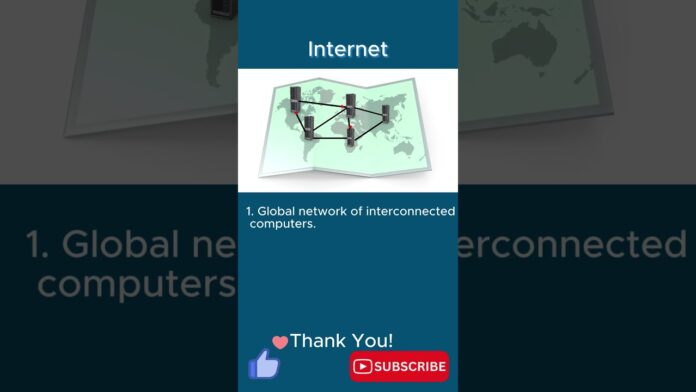In the vast expanse of the digital universe, the Internet stands as a beacon of connectivity, knowledge, and innovation, connecting billions of people, devices, and resources across the globe. From social networking and e-commerce to education and entertainment, the Internet has revolutionized the way we live, work, and interact in the modern age. In this article, we embark on a journey through the boundless realms of the Internet, uncovering its origins, functionalities, and transformative impact on society.
The Evolution of the Internet:
The Internet traces its origins back to the 1960s, when the United States Department of Defense initiated the development of ARPANET, a groundbreaking network that laid the foundation for modern internet technology. Over the decades, the Internet evolved from a limited research tool into a global network of interconnected networks, driven by advancements in telecommunications, computing, and networking technologies.
Understanding the Internet:
At its core, the Internet is a decentralized network of interconnected devices, including computers, servers, routers, and mobile devices, linked together through a complex system of data routes and protocols. The Internet operates on the principles of packet switching and TCP/IP (Transmission Control Protocol/Internet Protocol), enabling the seamless transmission of data packets across diverse networks and devices.
Key Components of the Internet:
- World Wide Web (WWW): The World Wide Web, developed by Tim Berners-Lee in the late 1980s, is a system of interlinked hypertext documents accessed via the Internet. The Web enables users to browse, search, and navigate through vast repositories of information and resources using web browsers such as Google Chrome, Mozilla Firefox, and Safari.
- Web Servers and Clients: Web servers host and deliver web content, while web clients, such as web browsers, retrieve and display this content to users. HTTP (Hypertext Transfer Protocol) facilitates communication between web servers and clients, enabling the retrieval and transfer of web pages, images, videos, and other multimedia content.
- Search Engines: Search engines such as Google, Bing, and Yahoo index and catalog billions of web pages and resources, enabling users to search for and discover relevant information quickly and efficiently. Search algorithms analyze and rank web pages based on various factors, including relevance, authority, and popularity.
Applications of the Internet:
- Communication: The Internet revolutionized communication, enabling instant messaging, email, voice and video calls, and social networking platforms such as Facebook, Twitter, and Instagram. These platforms connect individuals, businesses, and communities across the globe, fostering collaboration, engagement, and social interaction.
- Information Access: The Internet provides unparalleled access to information and knowledge, empowering users to research, learn, and explore diverse topics and subjects. Online resources such as Wikipedia, Khan Academy, and Coursera offer educational content and resources accessible to anyone with an Internet connection.
- E-Commerce: The Internet transformed commerce, enabling online shopping, banking, and financial transactions. E-commerce platforms such as Amazon, eBay, and Alibaba connect buyers and sellers worldwide, facilitating the purchase and sale of goods and services across borders and markets.
Future Trends and Innovations:
- Internet of Things (IoT): The Internet of Things (IoT) connects everyday objects and devices to the Internet, enabling them to communicate, interact, and exchange data autonomously. IoT applications span various domains, including smart homes, healthcare, transportation, and manufacturing.
- 5G Technology: The rollout of 5G networks promises faster speeds, lower latency, and increased connectivity, unlocking new opportunities for immersive experiences, real-time communication, and IoT deployments.
- Artificial Intelligence (AI) and Machine Learning: AI and machine learning technologies enhance the capabilities of the Internet, enabling personalized recommendations, natural language processing, and predictive analytics across various online platforms and services.
The Internet stands as a testament to human ingenuity, innovation, and collaboration, shaping the fabric of modern society and empowering individuals, businesses, and communities with unprecedented access to information, communication, and opportunity. As the Internet continues to evolve and expand, it will remain a driving force for progress, connectivity, and innovation, fostering a more interconnected, informed, and inclusive world for generations to come.
